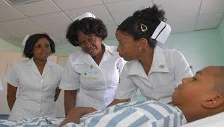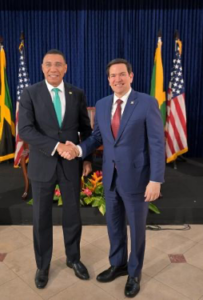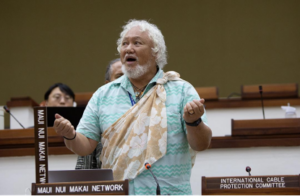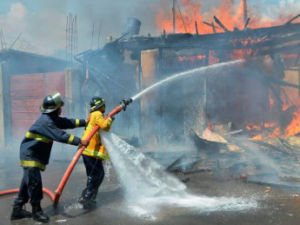Young men who subscribe to the LGBTQ lifestyle are being sent to pursue courses in theology and are being placed as pastors, evangelists, or Sunday school teachers in gay churches that are popping up across the island.
These churches generally start out at someone’s house and, as the numbers increase, are held at an external venue, which is paid for by members.
“They have them as missionaries; they have them as e
vangelists, but it is part of the recruitment strategy,” explained a former member of one of these churches.
The Christian church continues to be one of the main hindrances to the growth of the LGBTQ community in Jamaica, as most maintain the scriptural view of marriage as being between one man and a woman. As such, the gay community has established its own churches to spread its own doctrines that promote and endorse same-sex relationships.
The former member, who was also employed as a worker with members of the gay community, said she had been attending one of these churches for more than two years, and she loved the sermons because they were very motivational. She left with her family after one of the leaders in the church expressed sexual interest in her son.
“One of the things you have to learn about this community is that some of the nicest set of persons are there. They are loving, helpful, supportive, nicely dressed, [and] well-spoken. You gravitate to them because you feel appreciated, you feel loved, you feel respected, [and] you don’t feel as an outcast,” she explained, while pointing out that several influential Jamaicans were members at the time she attended.
One of the central messages preached by these organisations is that God is love, and God is pleased with any relationship where love is displayed. It does not matter if it is a same-sex union.
“I recognised, having been in the sector, that many of these men who are known homosexuals, many of these women who are known lesbians, I realised that they worshipped there and they held prominent positions. They would preach; they would teach Sunday school,” said the former member, who observed that there were no messages preached relating to holiness and righteousness.
Local media had started taking note of the establishment of gay churches on the island from as early as 2007. In 2010, a documentary was done about one of these church services that was being hosted in a tent in Jamaica by a gay pastor from the United States who visited the island every month.
The Church community in Jamaica has been very vocal in its opposition to the removal of the buggery law. Last October, Jamaica’s Constitutional Court dismissed a challenge to the country’s buggery law by gay rights activist Maurice Tomlinson, who is said to be ‘married’ to a male pastor in Canada. Tomlinson was seeking a declaration from the Constitutional Court that sections 76, 77, and 79 of the Offences Against the Person Act were an unconstitutional intrusion on the right to privacy. His application was opposed by several interested parties, including the Attorney General, the Lawyer’s Christian Fellowship, and at least nine other church groups. The court ruled that the removal of the buggery law was something that should be decided by parliament; however, politicians have generally withheld their public support of homosexuality for fear of backlash.
Equality Jamaica, which represents the local LGBTQ community, has launched a Human Rights Think Tank in partnership with the Caribbean Policy Research Institute (CAPRI) as part of efforts to advance research and advocacy for LGBTQ+ rights in Jamaica.
A study looking at the role of the Church in Jamaican governance and political decision-making is one of three that the LGBTQ advocacy group has commissioned in recent times. The study examines the historical and contemporary influence of the Christian Church on Jamaica’s governance and political landscape.
“It highlights the church’s role in shaping public policy, particularly on issues related to LGBTQ+ rights and reproductive health, and discusses strategies employed by churches to influence policy outcomes,” the group noted in its 2023 annual report.
It was found that “successes in influencing policy have been achieved on emotive issues, such as LGBTQ rights and abortion, where the church has been able to reflect and influence public opinion. The ability of a church to exercise influence in a specific area depends on several factors, including church-state relations, the moral authority of the church, and the intensity of the church’s preferences.”
By increasing the number of gay churches islandwide, the government will have to contend with the views of these churches in the same way it does with the views of the Christian churches that oppose the homosexual lifestyle when making national decisions.
Of note is the fact that some of these gay churches are attended by members of civil society groups. Some of these groups receive funding from international organisations, which have been pressuring the government to get rid of the country’s anti-sodomy law.
In the US, churches have been used to bolster support for the acceptance of the gay lifestyle and the passage of laws that are favourable to the LGBTQ community. The Church of Jesus Christ of Latter-day Saints and several Roman Catholic organisations, among others, had supported the passage of the Respect for Marriage Act in the US, whichsolemnised and recognised same-sex marriages. Last December, the Vatican approved a landmark ruling to allow Roman Catholic priests to administer blessings to same-sex couples as long as they are not part of regular Church rituals or liturgies.
Pope Francis, who had announced the church’s stance then, was under fire last week following reports that he used an offensive slang to refer to gay men at a private meeting with Italian bishops.
According to media reports, Francis had been taking questions from the bishops at their annual assembly when the question of whether to admit openly gay men into seminaries or priesthood colleges came up. It is reported that Francis stated a firm “no,” saying that seminaries were already too full of “frociaggine,” an offensive Italian slang term referring to gay men.






